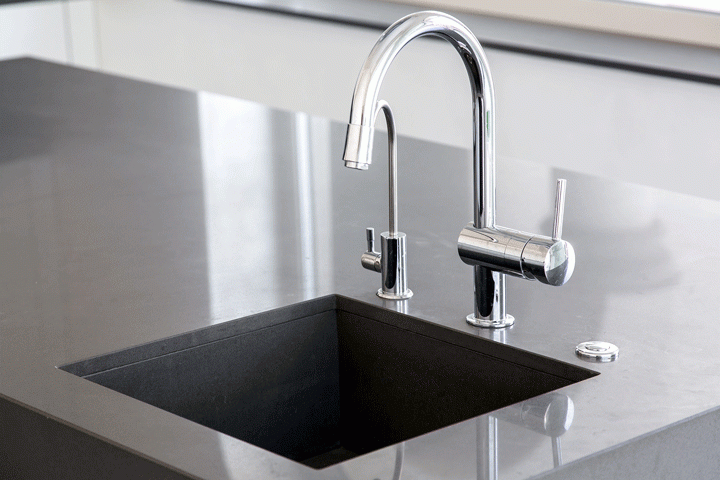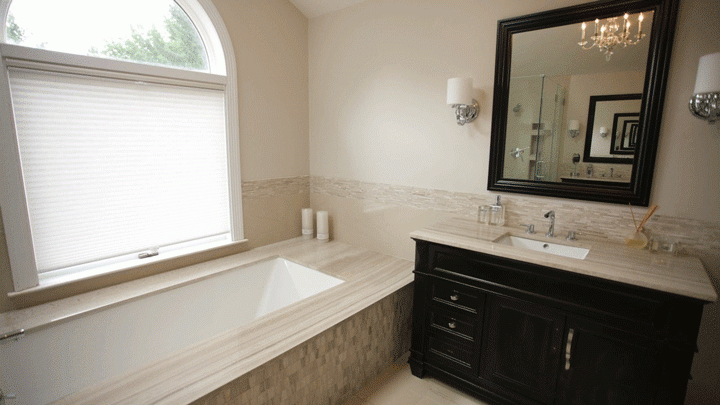
Table of Contents
Choosing a kitchen sink is a major part of any home remodeling project. While there are other factors you need to consider, such as countertops and appliances, selecting the right sink for your home is a big deal. Fortunately, there are many options on the market when it comes to sink materials.
One of your best options is a granite composite sink. If you are looking for a sink that pairs well with your natural granite countertops, a composite granite sink will be your best bet. This guide will cover everything you need to know about granite composite sinks, from the background of the material to the benefits and drawbacks of the sinks.
[get_quote]
What is Composite Granite?
As the name implies, composite granite sinks are made from a material called composite granite. The material is created by combining granite dust with acrylic resins. This combination is molded into the form of a sink.
Why Choose a Composite Granite Sink?
There are many reasons that homeowners opt for a granite composite sink, rather than stainless steel sinks or sinks made of other materials. One of the primary reasons is that these sinks are relatively durable. Unlike natural granite, you will not need to seal a granite composite sink.
What Are Some Benefits of Composite Granite Sinks?
There are quite a few benefits to choosing a composite granite sink. The fixtures are non-porous, hygienic, stain resistant and scratch resistant. They are also resistant to chipping.
Additional benefits that you will receive from these sinks include cost, consistent look and varied selection. While not as inexpensive as some materials on the market, composite granite sinks will cost less than natural granite sinks. If you want a material that has a uniform color throughout, composite granite will be a great choice for you. The material will also offer you a wide variety to choose from in terms of color, style, shapes, sizes and finishes.
What Are Some Drawbacks to Composite Granite Sinks?
Composite granite may be a good choice for kitchen sinks, but it is not perfect. Some drawbacks to this material include uniformity, hardness and cost. If you are looking for a material that has uniform color throughout, then composite granite is for you. On the other hand, if you want something that displays variation in patterns, natural granite will be the way to go. Granite composite is also a very hard material, meaning that it will break plates or glasses that you accidentally drop into the sink. While the cost of the material can be a benefit, it can also be a setback for the material. Composite granite will cost more than materials like stainless steel.
| Benefits | Drawbacks |
|---|---|
| Non-porous | Uniformity |
| Hygienic | Hardness |
| Stain resistant | Cost |
| Scratch resistant | |
| Chip resistant | |
| Cost | |
| Consistent look | |
| Varied selection |
What Kind of Sinks Are Best for Composite Granite?
Because composite granite is such a versatile material, it works well with many different styles and configurations of sinks. No matter if you are looking for an undermount sink, a drop-in sink or one that is single bowl or double bowl, you will be able to find a granite composite sink that suits your needs.
[get_quote]
What Are Some Brands of Composite Granite Sinks?
There are many brands on the market that offer granite composite sinks. You can find popular products from brands such as Kraus and Blanco.
If you are looking for a stylish and durable material for your new kitchen sink, consider choosing composite granite. From your countertops to your sink and faucets, you can add some serious style when updating your kitchen. This guide provides you with what you need to know before buying composite granite sinks.
















 The article helped me immensely
The article helped me immensely
 I’m now more informed on the subject
I’m now more informed on the subject
 I have questions about Marble.com
I have questions about Marble.com
 The article was not accurate at all
The article was not accurate at all
 There is a serious lack of information
There is a serious lack of information
 I have questions about Marble.com
I have questions about Marble.com